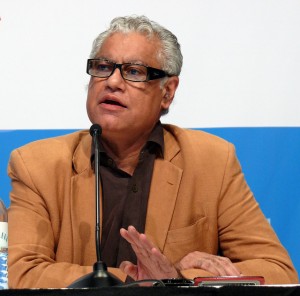MEDIA RELEASE
For Immediate Release – January 27, 2013
Charlottetown – January 27th, 2013 – Since his 2011 statement that the “status quo is going to remain in effect” Premier Robert Ghiz has declined to respond to calls for action on the issue of PEI’s status as the only Canadian province without abortion services. In honour of the 25th anniversary of the decriminalization in Canada, the PEI Abortion Rights Network has asked the premier to clarify the position of his government, and have received no response. The Premier has repeatedly denied media requests and avoided discussing what he has termed an “emotional issue.”
“There is no formal policy on the books anywhere in Prince Edward Island that would prevent this simple medical procedure from being performed in Island hospitals. If there were a policy, it would be a clear restriction of women’s rights to self-determination, and it wouldn’t hold up” says Emily Rutledge of the PEI Abortion Rights Network.
Pro-choice advocates in PEI are concerned that an outdated resolution still reflects the political position of the provincial government. In March of 1988 the government of PEI passed resolution 17, which stated that “the great majority of the people of PEI believe that life begins at conception and any policy that permits abortion is unacceptable” and resolving that “the Legislative Assembly of PEI oppose the performing of abortions.” This resolution was supported by current cabinet minister Ronnie McKinley. This resolution is the last formal statement made by the provincial government on the issue of abortion. Ghiz did not respond to a letter requesting he state his position on this resolution.
Members of the Abortion Rights Network believe that Ghiz is playing politics with women’s rights. “What is needed is political will,” says Rutlege, “We understand that politicians’ concerns about their personal re-election and the re-election to power of their parties is an emotional issue. We must not let the emotional issue of politicians’ fear about their political future two, three, or four years down the road trump women’s well-founded, rational claim to justice.”
Dr. Richard Wedge, acting CEO of Health PEI indicated as much during the 2012 Health PEI AGM: “The Premier of the province has told us at health PEI that he wants to maintain the status quo and it is our role to implement the health plan, as given by the government.”
Meanwhile, Dr. Colleen MacQuarrie, an associate professor of psychology at UPEI, has undertaken a community based research project that has revealed that the “status quo” harms PEI women’s health: “what has become painfully obvious is that all women who have had an unwanted pregnancy and wanted an abortion have been harmed by the lack of local access” says MacQuarrie, “the level of harm is not distributed equally among women. The most vulnerable and the most marginalized women have suffered the most from the lack of local access. Poor women and younger girls have been least likely to have the resources required and desperately try to bring a period back through self harm.”
In the hope that PEI women will soon be granted access to this primary health service, the PEI Abortion Rights Network and pro-choice organizations are holding celebrations to honour the anniversary of the historic Morgentaler decision.
– 30 –
PEI Abortion Rights Network
